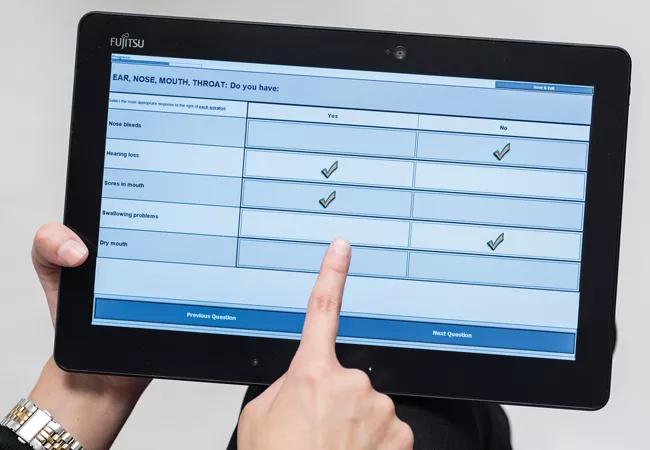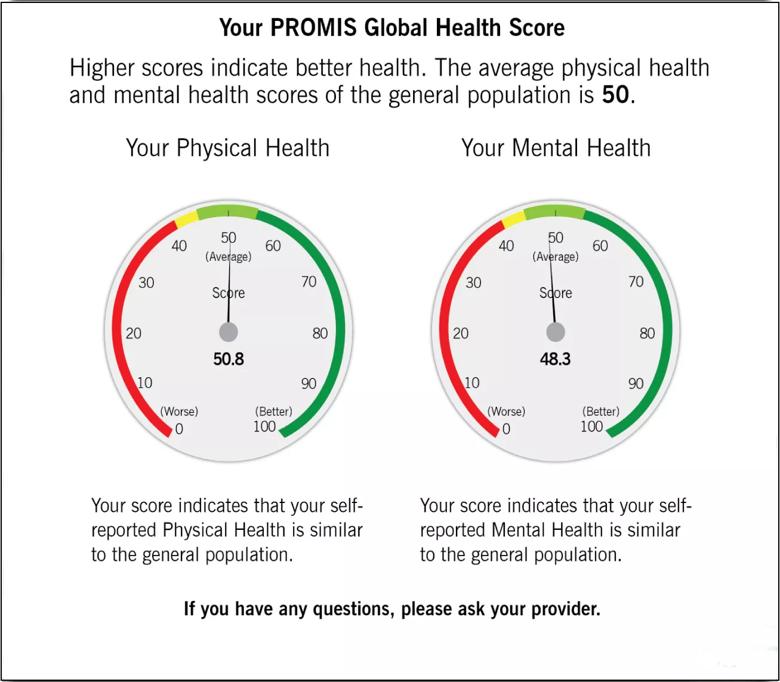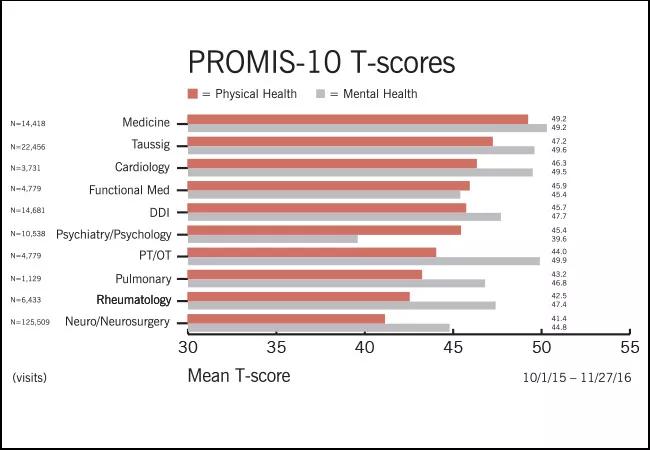A practical PRO biomarker databank

Image content: This image is available to view online.
View image online (https://assets.clevelandclinic.org/transform/abc0f5a9-ce05-4604-ad2d-33282c5b6e1b/16-RHE-2508-Abelson-ConsultQD_650x450_jpg)
16-RHE-2508 Abelson ConsultQD_650x450
Standardizing assessment of healthcare through patient-reported outcomes (PROs) is a national priority. Outcome measures evaluate the results of care and, therefore, are considered the most valid metrics for measuring and comparing clinical care, and driving quality and improvement.
Advertisement
Cleveland Clinic is a non-profit academic medical center. Advertising on our site helps support our mission. We do not endorse non-Cleveland Clinic products or services. Policy
There is growing recognition of the value of measuring PROs in patients with rheumatologic conditions. Clinical disease activity measures are important for making treatment decisions but sometimes do not measure the domains of health important to patients. PROs measured at point of care can enhance shared decision-making and facilitate treatment decisions, although the ability to collect and report PROs in real time can be challenging because of technology and workflow barriers.
Through support from Cleveland Clinic and an information technology team, the Department of Rheumatic and Immunologic Diseases developed a patient-entered data (PED) system using validated measurements that assess physical and mental function, social health and well-being, and disease activity, as well as a rheumatology-oriented review of systems. This PED system, called MyRheum, allows the clinician to evaluate patient-reported health measures at point of care, engage patients in their care and make better treatment decisions based on patient-centric data.
At the 2018 American College of Rheumatology’s Annual Meeting, several staff members presented compelling data on their recent experience with MyRheum.
In “Development and Implementation of a Patient-Reported Outcomes Measurement Information System (MyRheum),” authors Chad Deal, MD; Abby Abelson, MD; Leonard Calabrese, DO; database designer Greg Strnad; Irene Katzan, MD, MS; and M. Elaine Husni, MD, MPH, presented a behind-the-scenes look at MyRheum.
Advertisement
MyRheum was deployed throughout Cleveland Clinic’s health system, with 27 rheumatologists in 10 locations, in August 2016. Since then, patients have used it at each rheumatology clinic visit.
When developing MyRheum, the team assessed the feasibility, patient/provider compliance and utility of electronically collecting PROs using Patient-Reported Outcomes Measurement Information System (PROMIS®) Global Health (GH), PHQ-9, RAPID3 or SLAQ; pain, fatigue and physical function PROMIS domains; and a review of systems (ROS). (PROMIS allows measurement of health domains important for rheumatology patients as well as comparison to the general U.S. population.)
With MyRheum, PROs are collected at the patient’s visit on a tablet computer or prior to the visit through a patient portal (MyChart, Epic Systems) integrated with their electronic health record (EHR). PROMIS domains are administered using computer adaptive testing, and scores are standardized on a T scale with a mean of 50 and standard deviation of 10. Results are displayed within the EHR at the time of the visit. The ROS is administered at every visit. PHQ-9, if normal, is administered yearly, and the remaining scales are completed at least three months apart.

Image content: This image is available to view online.
View image online (https://assets.clevelandclinic.org/transform/27c78e2e-816a-4a9d-8654-f6b17fc09792/18-RHE-1293-Abelson-Figure-02-650pxl-width_jpg)
Through June 2018, approximately 160,000 MyRheum questionnaires (including nearly 50,000 PROMIS, nearly 90,000 RAPID3, more than 20,000 PHQ-9 and nearly 600 SLAQ) have been completed by 35,700 unique patients. Approximately 40 percent of questionnaires were completed by the patient on MyChart, at home before their visit.
Advertisement
Cross-departmental comparisons of diseases (PROMIS-10 T-scores) showed rheumatology patients had the second lowest self-reported physical health score, demonstrating the impact of rheumatologic diseases and the need to measure PROs.

Image content: This image is available to view online.
View image online (https://assets.clevelandclinic.org/transform/d916907d-558d-440c-9049-37a6ec739f2c/18-RHE-1293-Abelson-Figure-01-650x450pxl_jpg)
The creation of this large PRO biomarker databank demonstrates its practicality and provides a powerful platform for clinical care, research and value-based healthcare initiatives.
Advertisement
Advertisement
Researching the biological basis for why treatment is or is not effective
Scribing system helps create more face-to-face interactions
A conversation with Leonard Calabrese, DO
The case for continued vigilance, counseling and antivirals
High fevers, diffuse rashes pointed to an unexpected diagnosis
No-cost learning and CME credit are part of this webcast series
Summit broadens understanding of new therapies and disease management
Program empowers users with PsA to take charge of their mental well being